Environment
Young Maldivians join global climate strike
Students skipped school to protest in front of the main government office building.
Published
5 years agoon
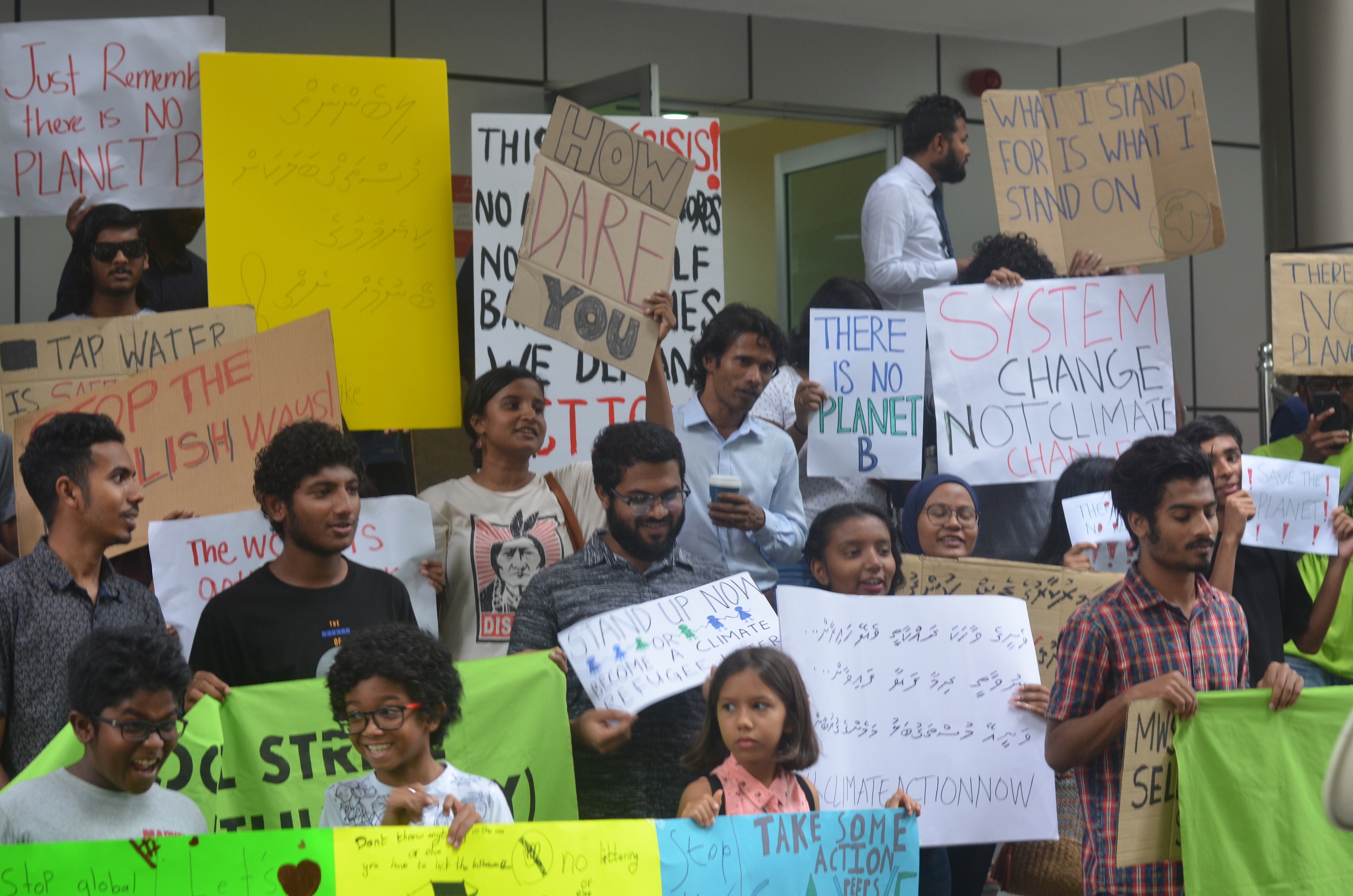
A group of school children skipped classes on Thursday to take part in the global climate strike by staging protests across the Maldives.
More than 50 protesters, including students as young as five, gathered in front of the main government office complex in the capital 15 minutes before offices opened. Little boys and girls of preschool age accompanied by their parents held up colourful handwritten posters. Chants of ‘Stop Stealing Trees,’ ‘Stop Making Plastic‘ and ‘Climate Action Right Now‘ rang outside the building as civil servants used the side entrance stairs.
Organised with the support of environmental activists, the demonstration continued until 1pm. The strike was planned for the 26th because Friday is the weekend in the Maldives, organisers explained.
Young protesters raised their voices against the destruction of mangroves, removal of trees, failure to address plastic pollution and the large-scale reclamation of lagoons for resort development.
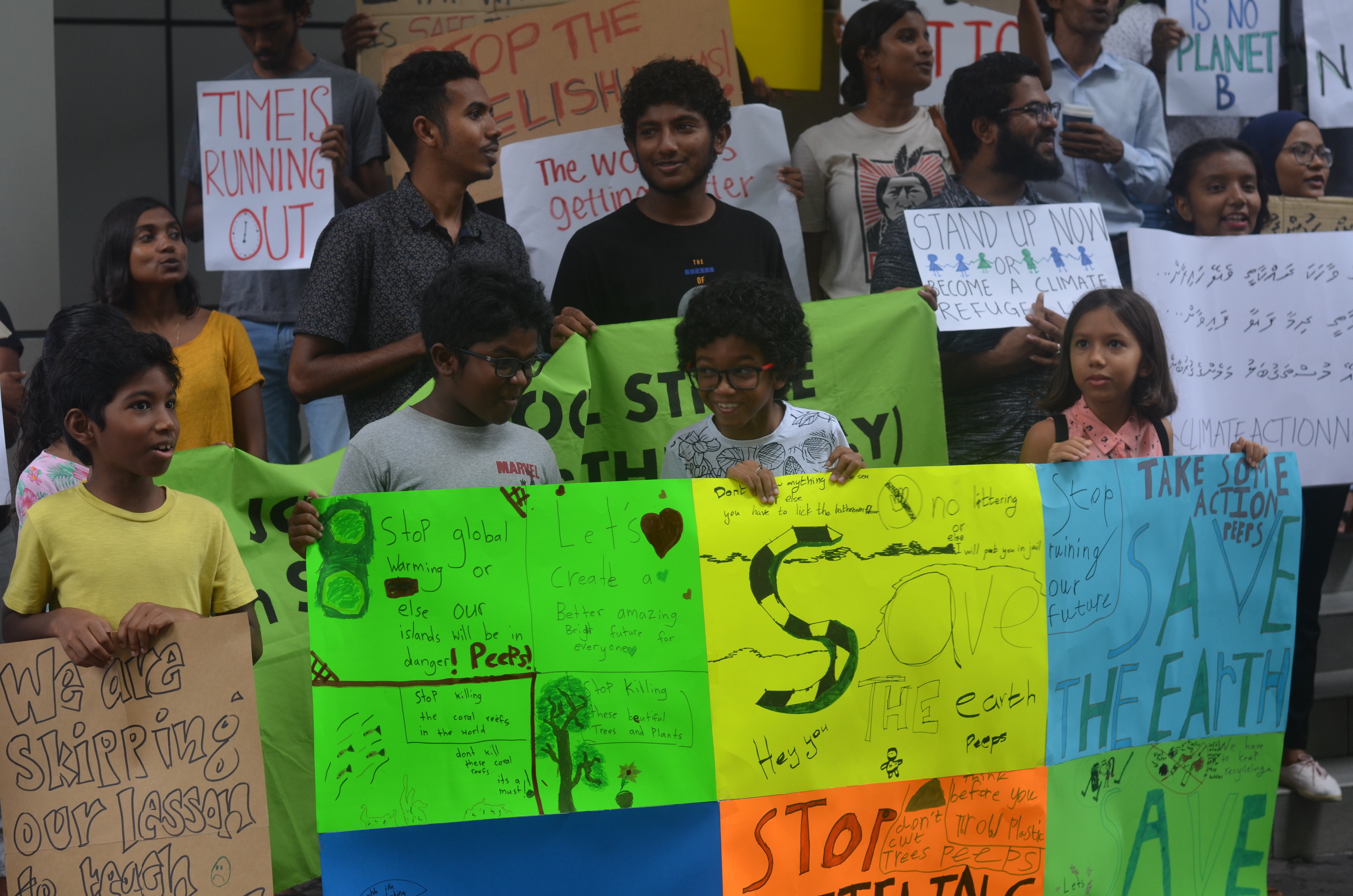
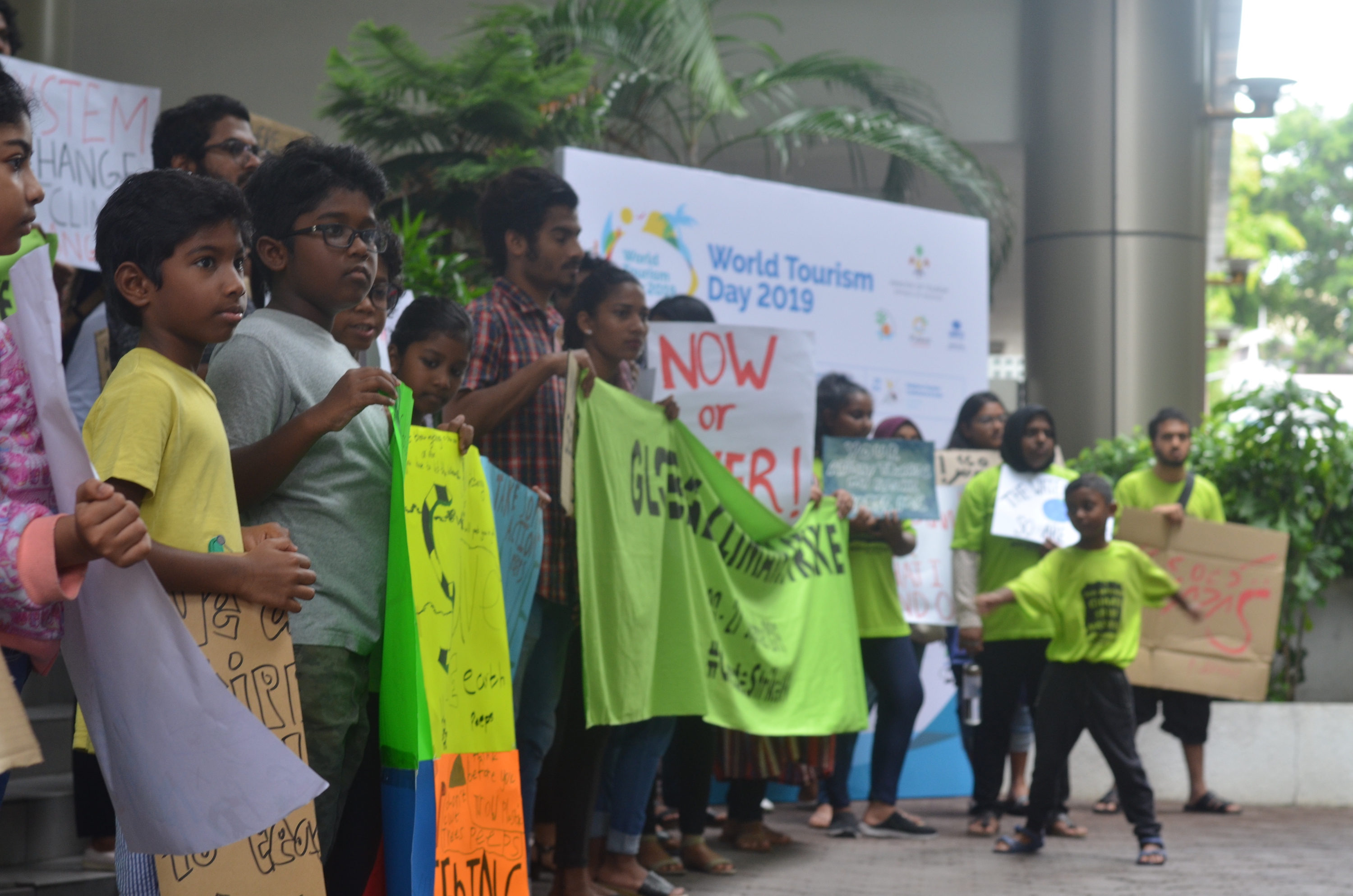
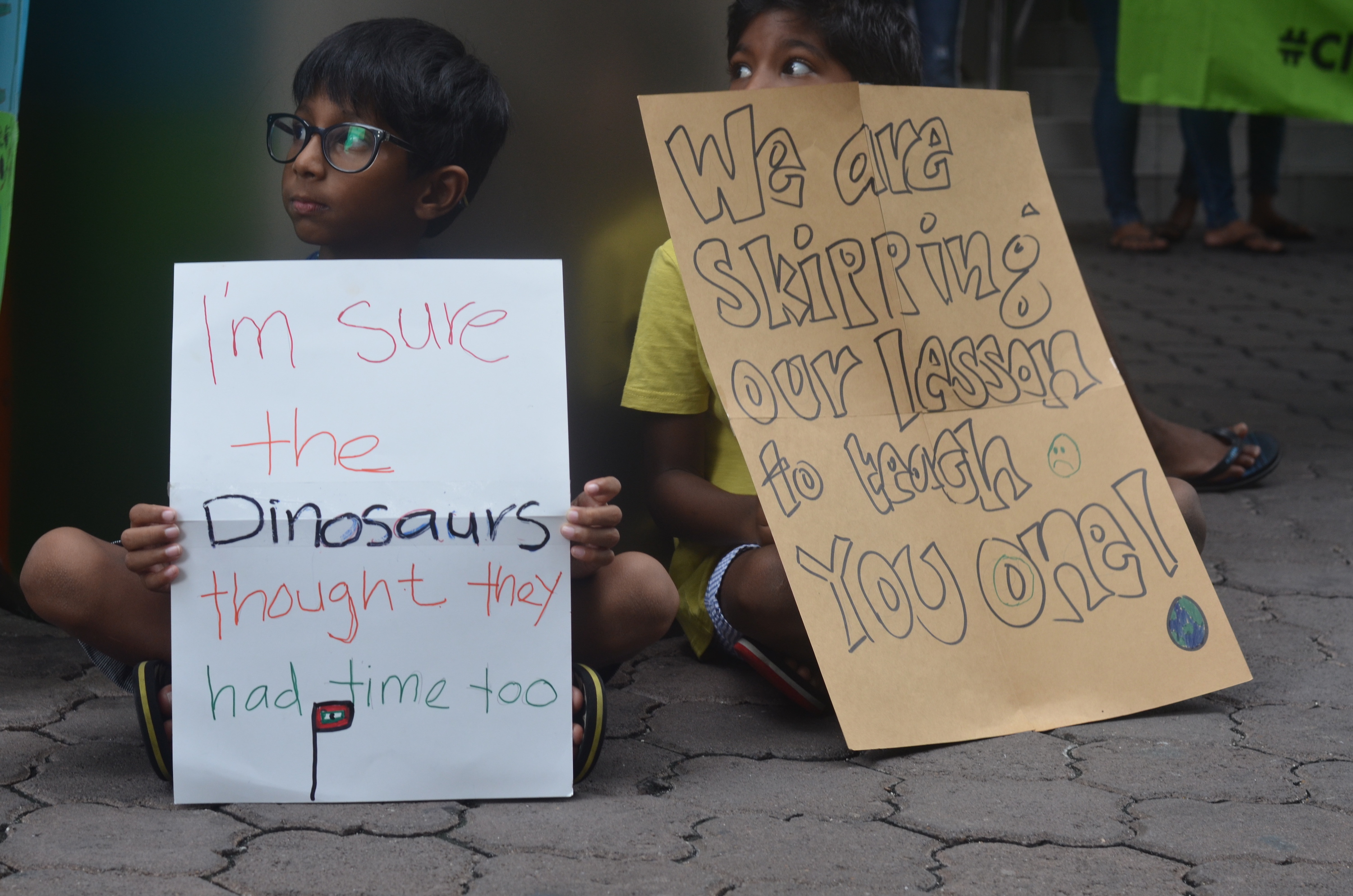
Teenagers spoke passionately about how the activism of Greta Thunberg inspired them to skip school and speak out against “inaction.”
Shaza Waheed, 16, stressed the urgent need for policy action to achieve meaningful change.
“We want real action now, we want the government to do what they say they will do. We don’t want to wait till 2023,” she said, referring to the president’s recent pledge to phase out single-use plastics.
“Things individual do can’t change things. Beach cleanups won’t change things. We need to act big.”
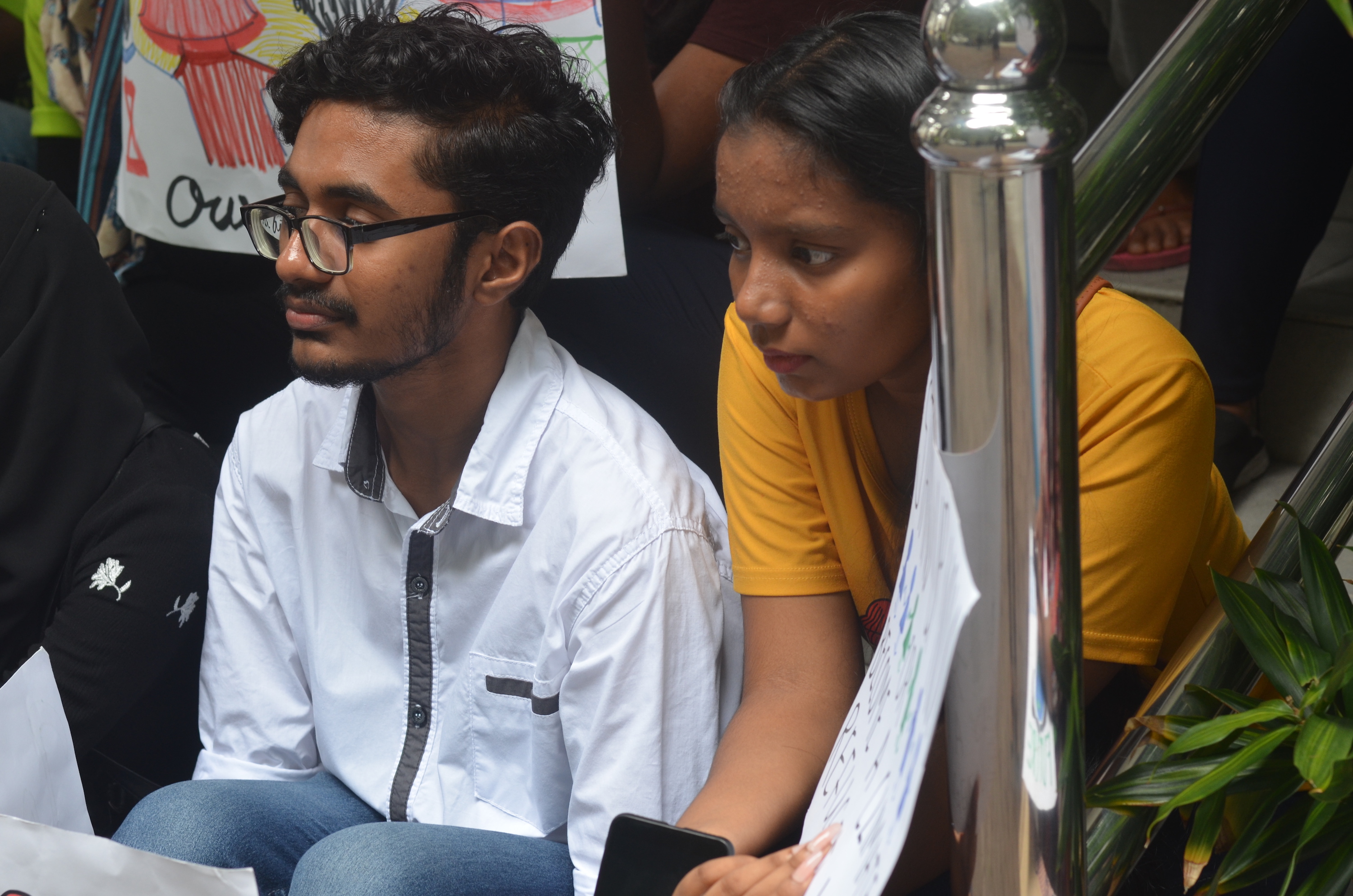
Fathimath Naf’ath Ahmed, another sixteen-year-old student, spoke defiantly about her right to protest.
“I am so tired of everyone saying we are the ‘future’ but they don’t listen to anything the ‘future’ says,” she said.
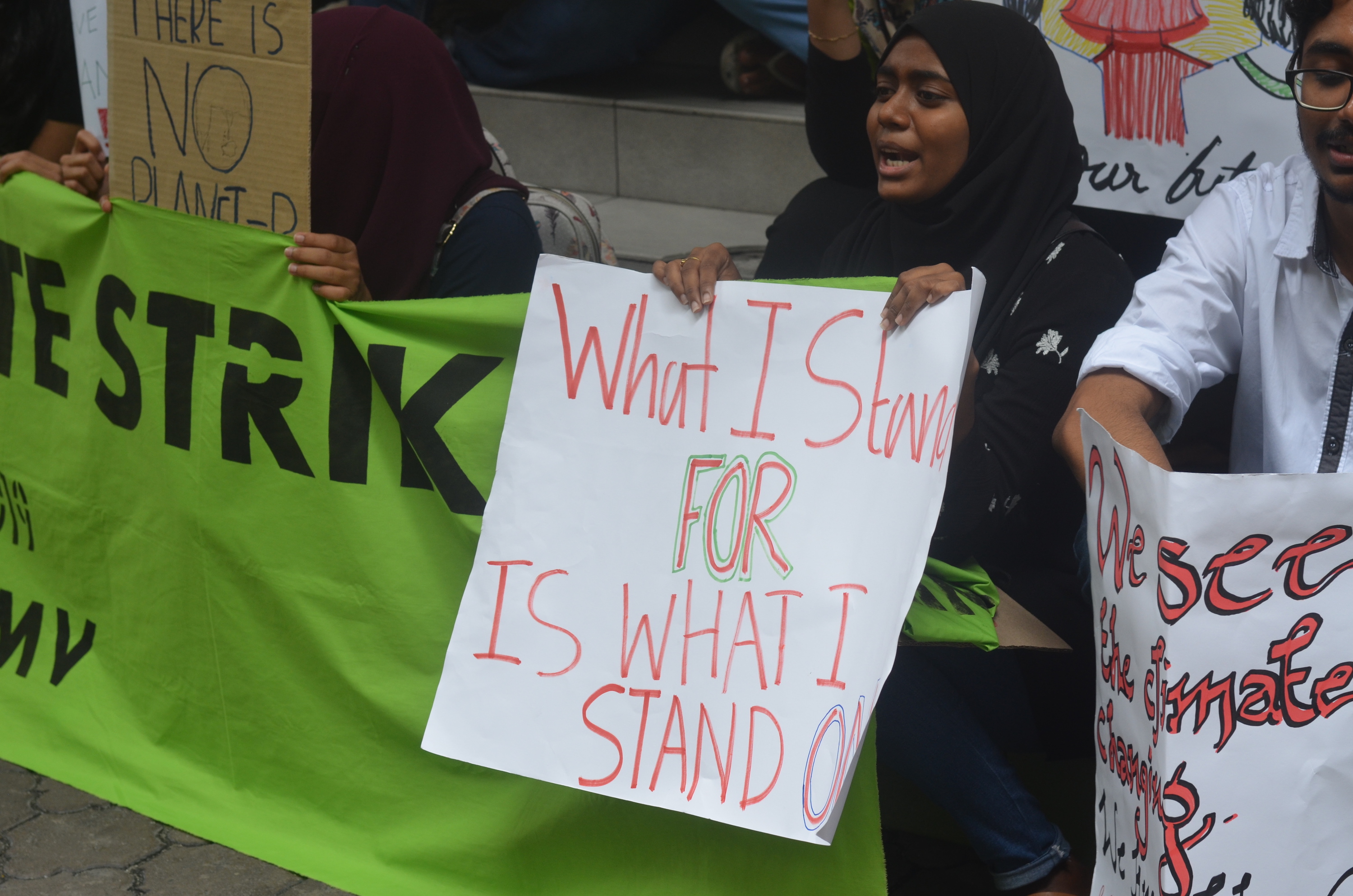
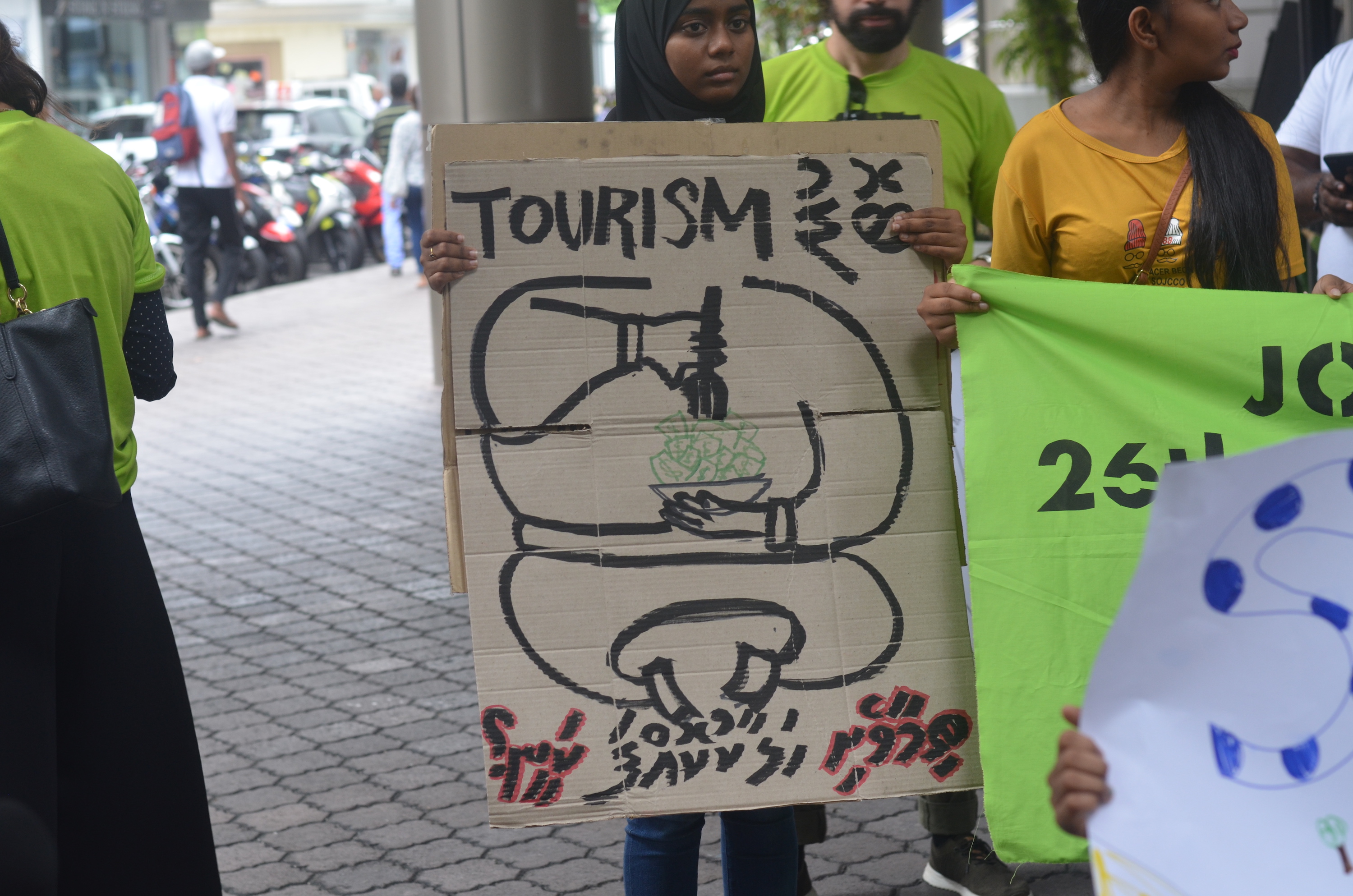
“In schools, talking about climate action once a month in Nature Club won’t do anything. We need a system to take action and I am so tired of the system telling us to not speak while you are a student. I am so tired,” Naf’ath continued. “All the students should be a part of this because when younger people come out on the streets, people will wonder ‘what is happening, why are children out on the streets?’”
Raya Katherin and Ali Rashwan, who are both due to sit their exams on Saturday, said the climate strike was too important.
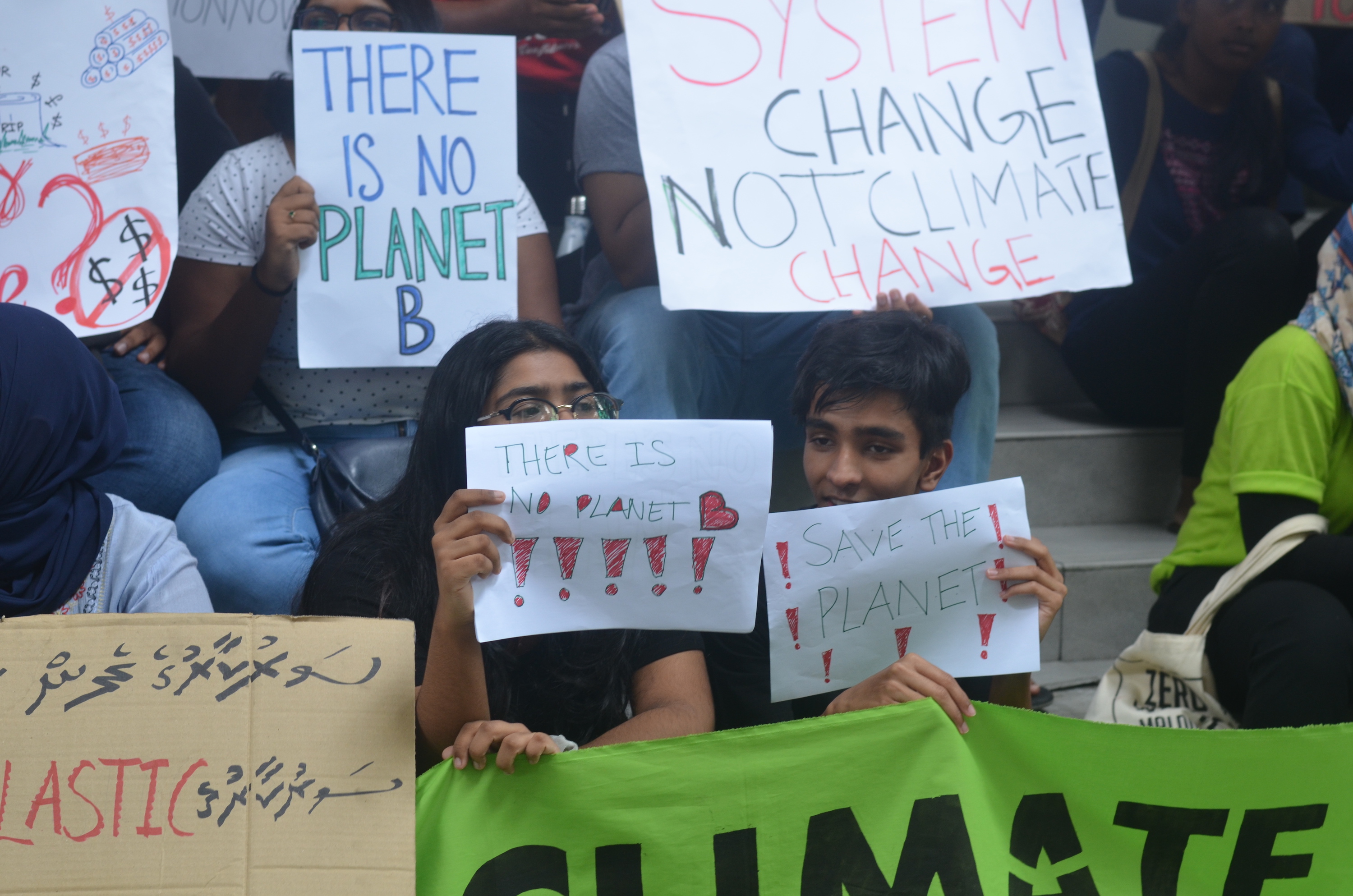
“Parents will always talk about how important school is, but there’s no point in anything if we go to school, work hard and then the country is destroyed,” Rashwan said.
“And many parents will say doing those things are useless, but maybe they don’t understand the severity of the issue, because sea level rise will affect us first. I believe raising our voice for something like this is way more important than any kind of education,” he added.
“Why should we study for a future may not exist for certain?” asked Raya.
Protests were also organised on the northern island of Haa Dhaalu Kulhudhuffushi and southern islands in Laamu atoll as well as Fuvahmulah City and Addu City. Young protesters presented a list of demands to their island councils.
In the lead-up to the strike, protesters on Wednesday dumped plastic bottles outside the Malé Water and Sewerage Company’s office in the capital. The state-owned company produces thousands of water bottles, the most ubiquitous item found discarded on local beaches.
The stunt displeased the police, who tweeted that it “cannot tolerate behaviour that violates the existing laws and regulations of the country,” citing waste management rules. The police response was heavily criticised on social media.
On Thursday, a group of NGOs and environmental activists published an open letter to the authorities with a list of demands for immediate action.
- DECLARE A CLIMATE EMERGENCY IN MALDIVES IMMEDIATELY
- Stop reclamation and any degradation of marine ecosystems.
- Make disaster preparedness and management a high priority.
- Ensure climate resilience through nature based soft measures in the face of increased climate risks
a. Preserve mangroves
b. Preserve and build green zones around islands
c. Preserve and plant trees on roads and open areas to combat
increased ambient temperatures.
d. Preserve forested areas and ban removal and transport of mature trees from islands for
commercial purposes.
e. Preserve seagrass habitats - Developing climate resilient housing and infrastructure
a. Put in place population and development limits for all islands to avoid resource
over-utilisation and to reduce pressures on natural ecosystems, and to better manage
natural disaster scenarios and health related outbreaks (which are predicted to be more
frequent and more intense in the face of climate change).
b. Develop Climate resilient building codes and circular models for building design and
build climate resilience index of buildings. Building codes to include adaptive measures
like water storage, provision for renewable energy , innovative methods for food
security such as edible gardens, composting, cold storage and reuse of greywater.
c. Ensure the roads and drainage infrastructures take into account predicted increase in
flooding events.
d. Move away from the “conventional harbour” models to innovative harbour solutions that
promotes climate resilience.
e. Ensure that land use plans place critical infrastructure away from flood zones. - Safeguarding food and water security and safety
a. Prioritise innovative ways for food security and land allocation for development of
sustainable agriculture projects such as vertical farms.
b. Ban use of harmful pesticides or chemicals in agriculture.
c. Make harvesting of rainwater and its storage and water quality a high priority
d. Urgently provide safe drinking water for all islands with identified water shortages
during dry periods.
e. Ensure newly planned installation of water supply on islands provide
drinkable grade water
f. Ensure mechanisms are in place for protection of water lenses on islands.
g. Ensure sewage is treated before being discharged - Create a number of Biosphere Reserves across the Maldives that will preserve the resilience of
the country.
a. Create Marine Protected Areas as core areas within Biosphere Reserves, prioritising
ALL regions which have not been impacted by development.
b. Introduce strict laws and monitoring for the enforcement of the integrity of the
biosphere.
c. It should be illegal to dredge or reclaim land for any purpose associated with tourism or
fisheries or other industries in the biosphere.
d. Ensure the integrity of the water lenses on all islands at the biosphere reserve.
e. Environmental Offenders should be held accountable. - Transitioning to renewable energy and reducing emissions
a. Eliminate dependency on fossil fuels and transit to renewable energy sources for
electricity
b. Introduce and maintain a public transport system in more urbanised islands that is
favourable for public use
c. Provide pedestrian and bicycle friendly roads.
d. Provide Electric Vehicle incentives and drastically reduce the import of fossil fuelled
vehicles. This includes incentives for parking, yearly fees and registration incentives.
e. Capping the amount of vehicles in an island depending on the population and the size
of the island
f. Projects under the government pledge to provide water and sanitation to all islands to
be fuelled by renewable sources.
g. Make a complete transition to renewable energy by 2030 as pledged in the United
Nations General Assembly. - Climate transparency, communication and public engagement
a. Communicate action plans and policies with all stakeholders and ensure transparency.
b. Stop token engagements and policy documents without actions.
c. Act on the Public’s right to information.
d. Publicize and share Climate Smart Resilient Islands Model Action Plan with public within
ONE MONTH. Including sharing the budget for climate mitigation and adaptation.
e. Publicize the budget and spending of Green Fund.
f. Ensure meaningful public consultation during planning.
g. Ensure information dissemination on mainstream and public media regarding Climate
Resilience and Climate Crisis.
h. Create a network of partners and civil society to find solutions to the climate crisis
locally. - Strengthen environmental related laws and regulations for immediate action
a. Criminalise all reclamations for tourism and other industrial purposes.
b. Develop Water Security and Safety Act which has not materialized to date.
c. Make Strategic Environment Assessments compulsory for large national level
programmes and development projects across the country.
d. Government policy backed by legal provision, including targets for setting up self
sustainable food sources to ensure food security for Maldivians.
e. Act on the existing laws to immediately stop littering and dumping, open burning of
waste. - Integrate climate mitigation and adaptation in Education systems
a. Invest into building climate resilience in children and youth and ensuring their voices are
heard and incorporated into policies and plans.
b. Revise and re-create education modules to ensure children are mentally and physically
ready and empowered for a rapidly changing world and the climate crisis.
c. Include activities and lessons in all subjects that promote the love towards natural
Maldivian environments with a view that the children will grow into responsible citizens
safeguarding the environment they love.
d. Make schools learning grounds for behavioral change and climate adaptation by
establishing a “green school” grading system based on allocations such as School waste
management, renewable energy, gardening, composting, food choices and
conscious consumerism.
e. Train teachers and educators on the importance of environmental education through
hands on experiences and graded exams for teachers. - Include community and indigenous knowledge when addressing the climate crisis
a. Prioritise and support documentation and dissemination of indigenous knowledge.
b. Give priority to understanding, preserving and applying indigenous knowledge.
c. Integrate practical components of native wisdom into school curriculums.
d. Set up opportunities to support livelihood through traditional know-how and
craftsmanship.
e. Support and Empower community initiatives in resilience building, including the
conservation and protection of environment . - IMMEDIATE Solutions to Waste Management
a. Stopping the burning of Thilafushi waste and burning of waste on any island immediately.
b. Immediately announce cessation of endorsing oxo-degradable plastic bags by EPA.
c. Implement the pledge to ban all single use plastics by 2023 completely. Including the
banning of drinking water storage in PET bottles and banning of all single-use
plastic bags.
d. Stop ocean dumping of waste, especially by sea transport vehicles.
e. Control of sewage dumping and invest in innovative technologies for treatment and
disposal of sewage
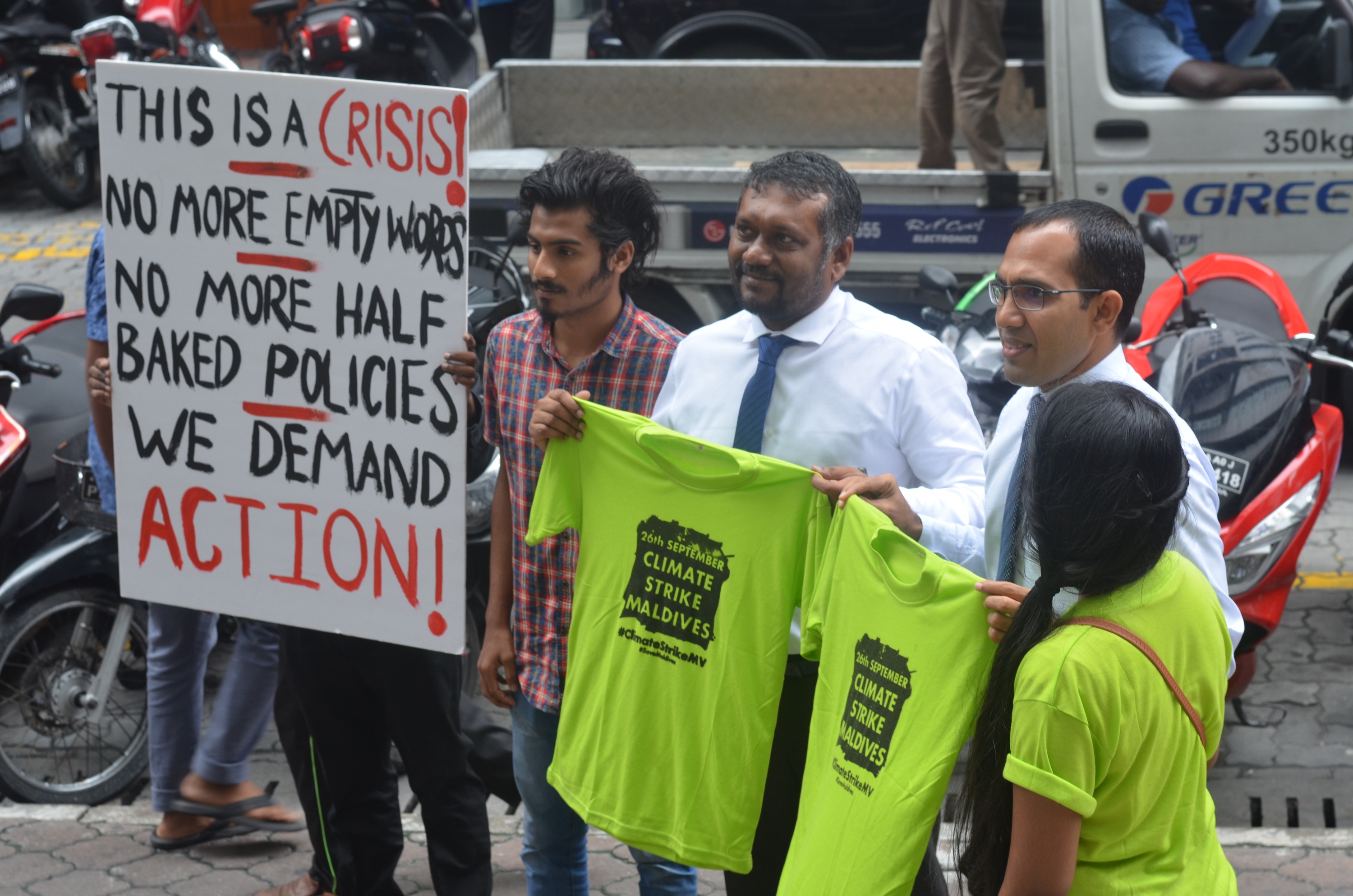
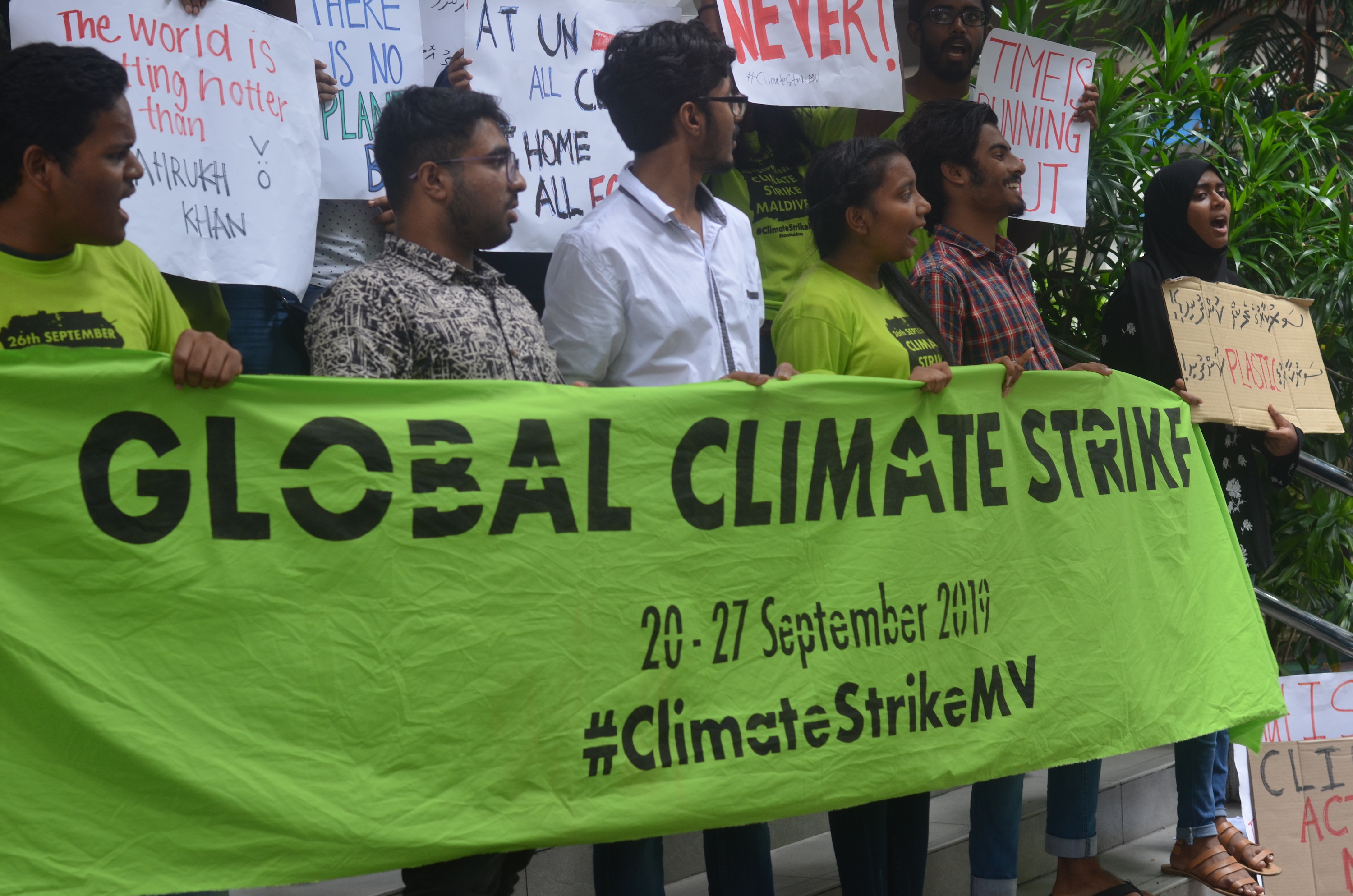
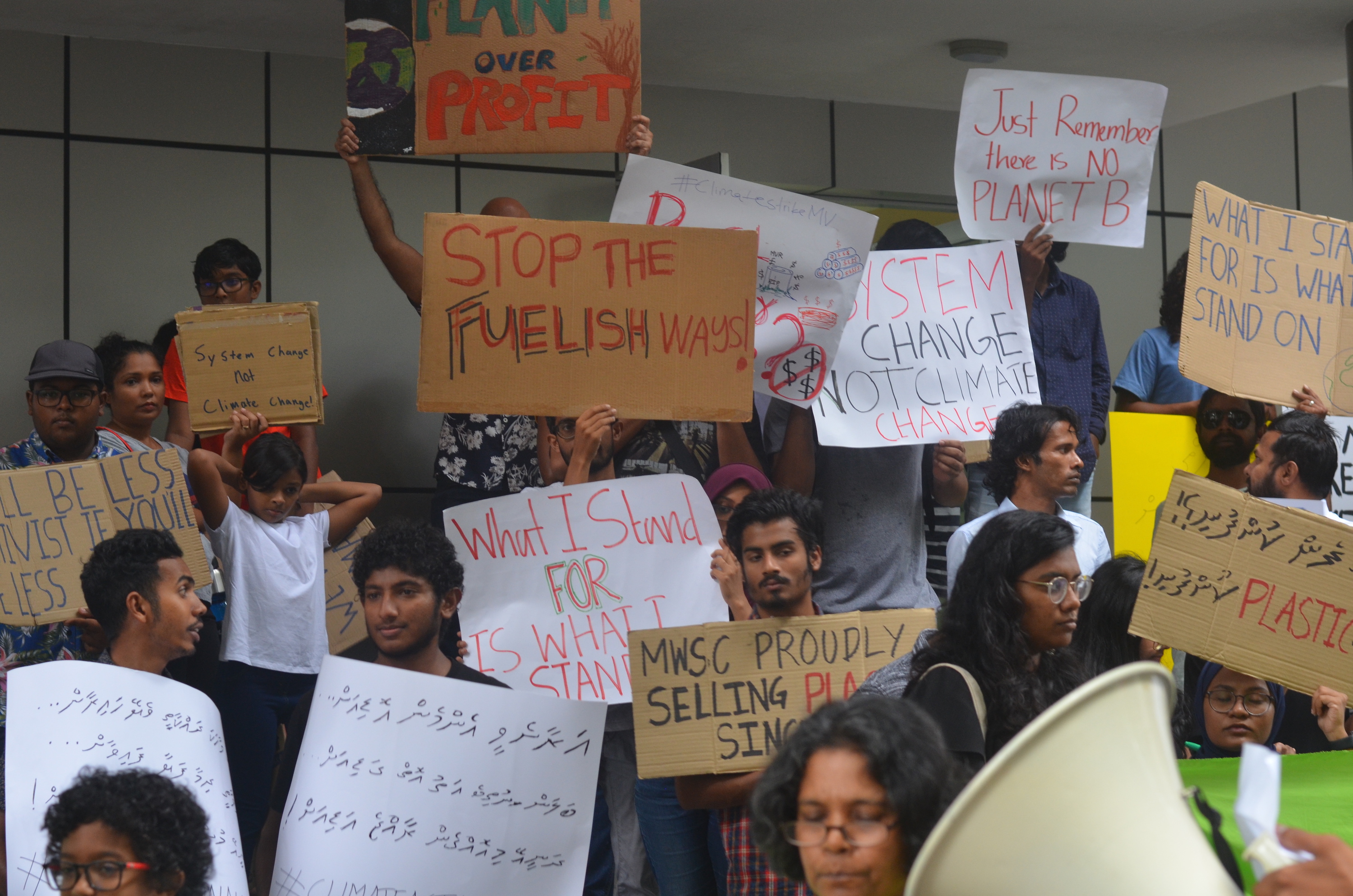
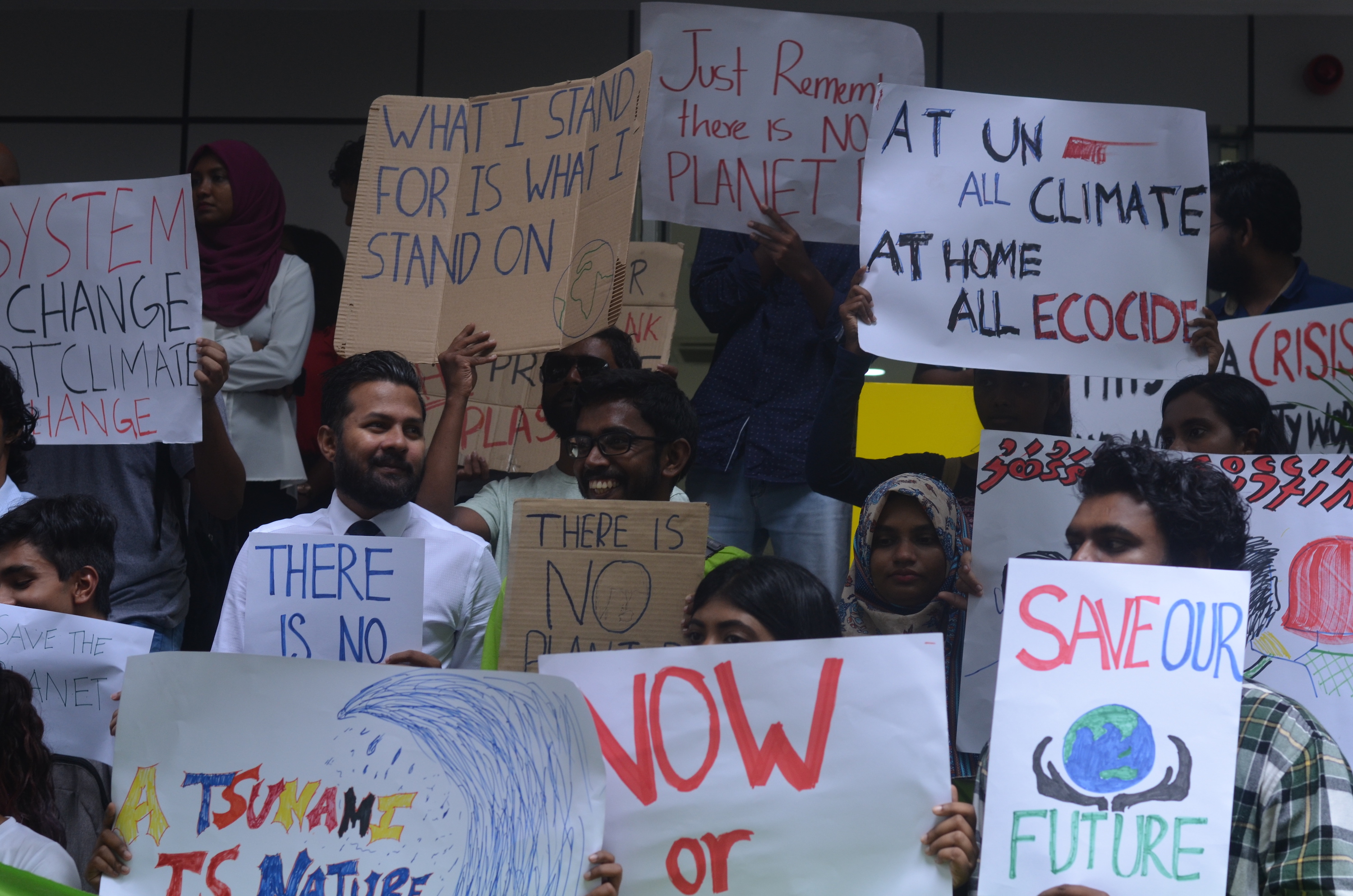
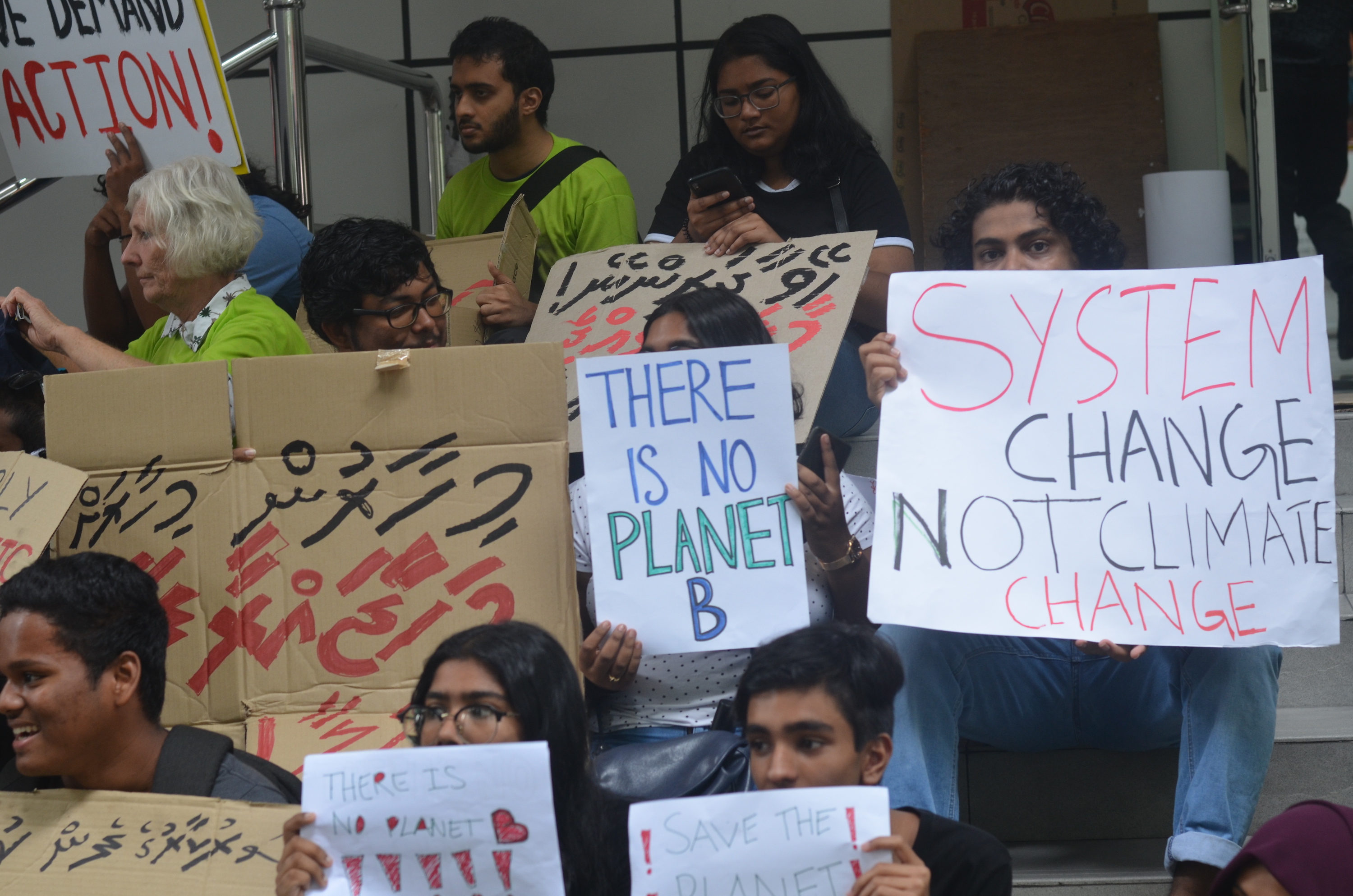
Related Posts
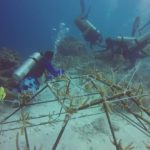 Lhaimagu youth plant coral on damaged reef
Lhaimagu youth plant coral on damaged reef Environment ministry ignored ring road project concerns
Environment ministry ignored ring road project concerns EPA condemns reclamation of reefs to build luxury resorts
EPA condemns reclamation of reefs to build luxury resorts Maldives forges partnerships for ocean protection
Maldives forges partnerships for ocean protection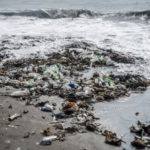 ‘Clean Waves’ to protect Maldives island from plastic pollution
‘Clean Waves’ to protect Maldives island from plastic pollution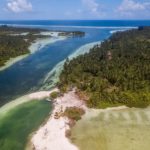 EPA under fire for authorising ‘tree grab’
EPA under fire for authorising ‘tree grab’
You may like
-


Maldives Independent suspends operations
-


EPA rejects Maafaru runway expansion project
-


Infrastructure development pushing islands to ‘tipping point’
-


Military alert level raised as ‘precautionary measure’
-


Taxi driver was fatally stabbed during robbery
-
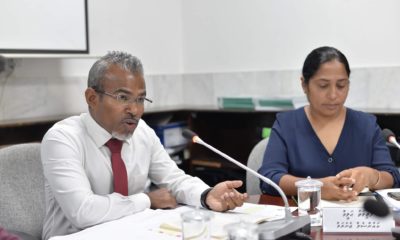

Arbitration case filed in Singapore over Fushidhiggaru lagoon

Maldives Independent suspends operations

Iyaz on Female Circumcision

EPA rejects Maafaru runway expansion project

Infrastructure development pushing islands to ‘tipping point’


